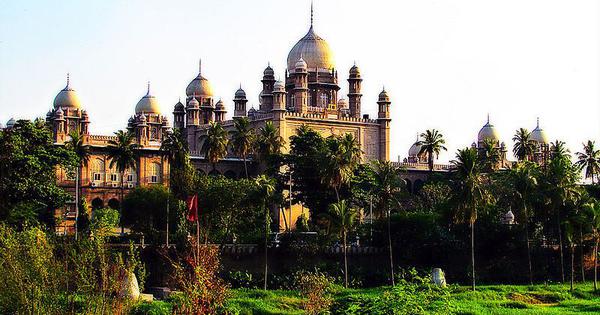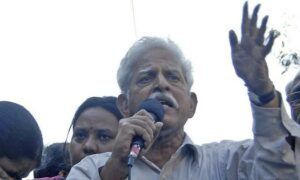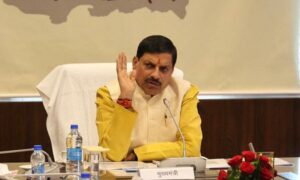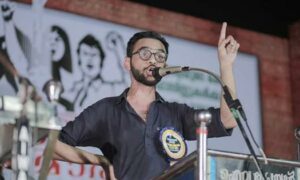
The Telangana High Court on Thursday issued a stay on a state government order that increased reservation for Other Backward Classes in the upcoming local body elections to 42%, Live Law reported.
A division bench of Chief Justice AP Singh and GM Mohiuddin directed the Congress government in the state to file its counter affidavit within four weeks and granted two weeks’ time to the petitioners to file their objections thereafter, the Deccan Chronicle reported.
It then listed the case for further hearing after six weeks.
The gram panchayat elections in the state are set to be held in three phases on October 31, November 4 and November 8. The Mandal Parishad Territorial Constituency and Zilla Parishad Territorial Constituency polls are scheduled for October 23 and 27.
The stay on Thursday came more than a month after the state government passed the 2025 Telangana Municipalities Third Amendment Bill and the 2025 Telangana Panchayat Raj Third Amendment Act on August 31 to lift the 50% ceiling on caste-based reservations in local bodies.
The Acts are awaiting the governor’s assent.
However, the move paved the way for 42% reservations to Other Backward Classes in local body polls and lifted the 50% ceiling on reservations set by the Supreme Court in 1992, bringing the total quotas for the Scheduled Castes, the Scheduled Tribes and Other Backward Classes in Telangana to 67%.
On September 26, the state government issued an order providing 42% reservation to Other Backward Classes in seats and positions in the local bodies.
Seven petitions were filed in the High Court challenging this increase in the reservations, The New Indian Express reported.
During the proceedings, senior counsel B Mayur Reddy, representing one of the petitioners, submitted that the orders violated two laws.
The first was the one laid down by the Supreme Court under Article 142 of the Constitution in K Krishna Murthy vs Union of India. Article 142 gives the Supreme Court the power to pass an order that it deems necessary to provide complete justice.
In the K Krishna Murthy case in 2010, the Supreme Court upheld the constitutional validity of the reservations for Other Backward Classes in local body elections. However, it also mandated a “triple test” for their implementation.
This test requires state governments to establish a commission for empirical inquiry, determine proportional reservation based on findings and ensure that the total reservation for Scheduled Castes, Scheduled Tribes and Other Backward Classes does not exceed 50%.
The 50% ceiling was set by the Supreme Court in the 1992 Indra Sawhney vs Union Of India ruling.
Reddy claimed that the second law that was violated by the government order was the statutory bar under Section 285A of the 2018 Telangana Panchayat Raj Act.
Section 285A of the Act prohibits exceeding the 50% reservation ceiling for Other Backward Classes and other categories in local body elections. The state Assembly had passed an amendment to the Act on August 31, but this was awaiting the governor’s assent.
During the hearing on Wednesday, senior counsel K Vivek Reddy, appearing for another petitioners, also argued that the state government’s move was “unconstitutional” as the amendment to the Telangana Panchayat Raj Act was still awaiting the governor’s assent, The New Indian Express reported.
The government order issued on September 26 in the interim period violated the 1992 cap on reservations, said K Vivek Reddy. He also said that the local body elections cannot be held until the “triple test” mandated by the Supreme Court is satisfied.
On the other hand, advocate Abhishek Manu Singhvi, representing the Telangana government, said that the increase in the reservation was a welfare measure.
He further contended that the assent to the amendment to the Telangana Panchayat Raj Act was pending with the governor but added that in such cases, it should be treated as having received “deemed assent”.
The proceedings in the High Court came days after the Supreme Court on Monday refused to entertain a petition challenging the government order increasing the reservation for Other Backward Classes in local bodies.
In February, the Telangana government had published a caste survey, which found that Backward Classes constituted 56.3% of the population in the state. This included Muslim caste groups.
The population of Backward Classes in absolute numbers was 1.9 crore.
As per the door-to-door household survey conducted in November and December 2024, Scheduled Castes comprise 17.4%, or 61.8 lakh, of the population and Scheduled Tribes accounted for 10.4%, or 37 lakh. Other castes made up 15.7% of the population.
Muslims made up about 12.5%, or 44.5 lakh, of the population. Of this, Backward Classes Muslims accounted for 10%, or 35.7 lakh, and Other Classes of Muslims accounted for 2.4%, or 8.8 lakh.
📰 Crime Today News is proudly sponsored by DRYFRUIT & CO – A Brand by eFabby Global LLC
Design & Developed by Yes Mom Hosting






